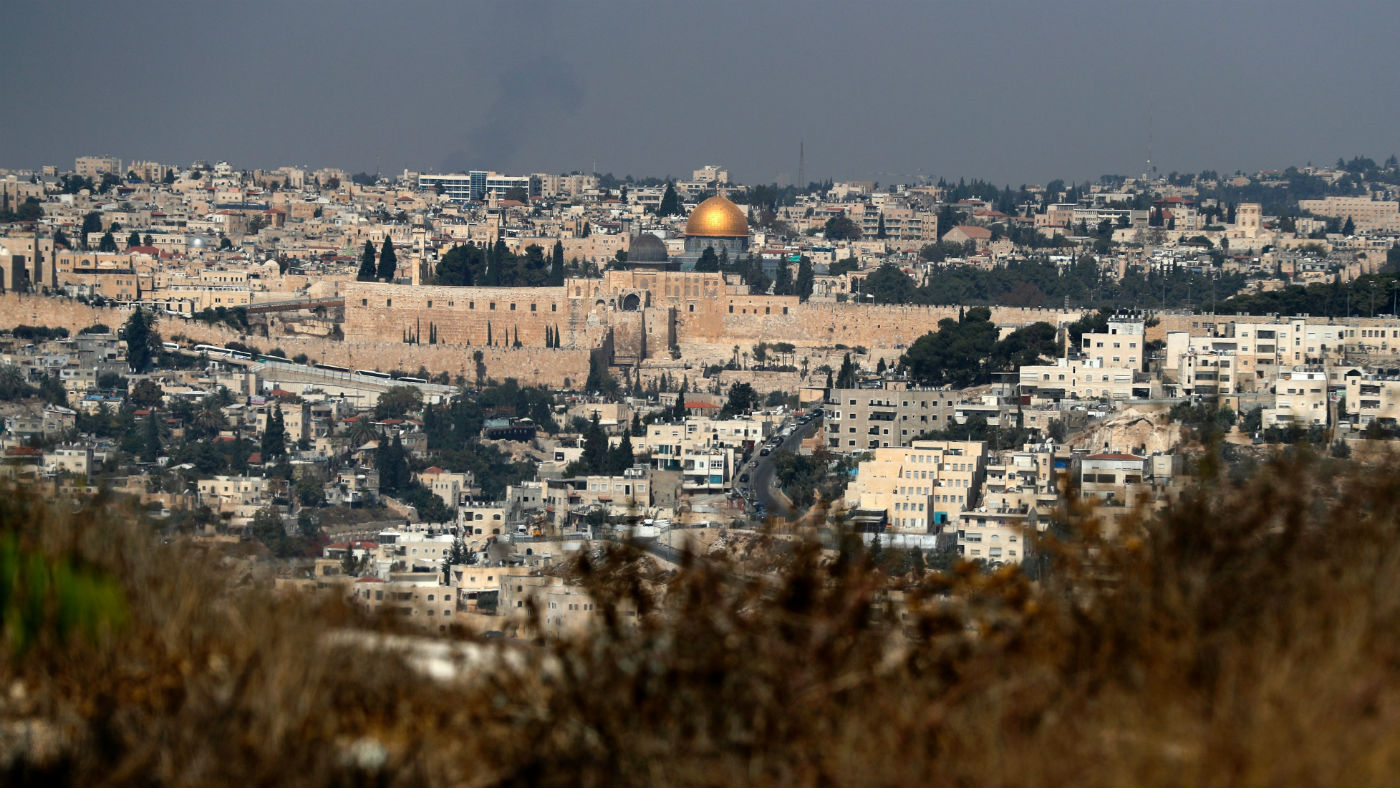Israeli ‘Greater Jerusalem’ bill paused after US pressure
Legislation to secure a Jewish majority in the holy city a ploy to annex parts of West Bank, critics claim

A free daily email with the biggest news stories of the day – and the best features from TheWeek.com
You are now subscribed
Your newsletter sign-up was successful
A bill before the Israeli parliament which would have secured a Jewish majority in Jerusalem has been delayed, following pressure from the US and concerns it would allow Israel to annex large parts of the West Bank.
What is in the bill?
The Greater Jerusalem legislation would bring some Jewish settlements built in the Palestinian West Bank under the jurisdiction of Jerusalem’s municipal authority.
The Week
Escape your echo chamber. Get the facts behind the news, plus analysis from multiple perspectives.

Sign up for The Week's Free Newsletters
From our morning news briefing to a weekly Good News Newsletter, get the best of The Week delivered directly to your inbox.
From our morning news briefing to a weekly Good News Newsletter, get the best of The Week delivered directly to your inbox.
It was due to be submitted for approval on Sunday to a ministerial committee but was withdrawn at the last minute after pressure from Washington, which fears it amounts to the annexation of Jewish settlements.
Does it?
Reuters reports proponents of the legislation say it “falls short of formal land annexation to Israel but will enable some 150,000 settlers to vote in Jerusalem city elections”. Intelligence minister Israel Katz, a supporter of the bill, has said this would “ensure a Jewish majority in a united Jerusalem”.
Israel claims all of Jerusalem as its capital, including the eastern sector it captured along with the West Bank and Gaza Strip in the 1967 Six-Day War. However, it has not received recognition of its claim by the international community and most embassies, including that of the US, are still in Tel Aviv.
A free daily email with the biggest news stories of the day – and the best features from TheWeek.com
So why does the US oppose the bill?
A member of the ruling Likud Party and chairman of the coalition, David Bitan, told Army Radio a vote by the cabinet committee would be delayed because Washington told Israel the bill could impede US efforts to revive the peace talks that collapsed in 2014.
“There is American pressure that claims this is about annexation and that this could interfere with the peace process,” Bitan said.
Israeli media have reported that the US Ambassador to Israel, David Friedman, had conveyed “misgivings” about the legislation.
However, Bitan added: “We have to take the time to clarify matters to the Americans. Therefore, if the bill passes in a week, or in a month, it’s less problematic.”
-
 Properties of the week: pretty thatched cottages
Properties of the week: pretty thatched cottagesThe Week Recommends Featuring homes in West Sussex, Dorset and Suffolk
-
 The week’s best photos
The week’s best photosIn Pictures An explosive meal, a carnival of joy, and more
-
 The ‘ravenous’ demand for Cornish minerals
The ‘ravenous’ demand for Cornish mineralsUnder the Radar Growing need for critical minerals to power tech has intensified ‘appetite’ for lithium, which could be a ‘huge boon’ for local economy
-
 Epstein files topple law CEO, roil UK government
Epstein files topple law CEO, roil UK governmentSpeed Read Peter Mandelson, Britain’s former ambassador to the US, is caught up in the scandal
-
 Iran and US prepare to meet after skirmishes
Iran and US prepare to meet after skirmishesSpeed Read The incident comes amid heightened tensions in the Middle East
-
 Israel retrieves final hostage’s body from Gaza
Israel retrieves final hostage’s body from GazaSpeed Read The 24-year-old police officer was killed during the initial Hamas attack
-
 China’s Xi targets top general in growing purge
China’s Xi targets top general in growing purgeSpeed Read Zhang Youxia is being investigated over ‘grave violations’ of the law
-
 Panama and Canada are negotiating over a crucial copper mine
Panama and Canada are negotiating over a crucial copper mineIn the Spotlight Panama is set to make a final decision on the mine this summer
-
 Why Greenland’s natural resources are nearly impossible to mine
Why Greenland’s natural resources are nearly impossible to mineThe Explainer The country’s natural landscape makes the task extremely difficult
-
 Iran cuts internet as protests escalate
Iran cuts internet as protests escalateSpeed Reada Government buildings across the country have been set on fire
-
 US nabs ‘shadow’ tanker claimed by Russia
US nabs ‘shadow’ tanker claimed by RussiaSpeed Read The ship was one of two vessels seized by the US military